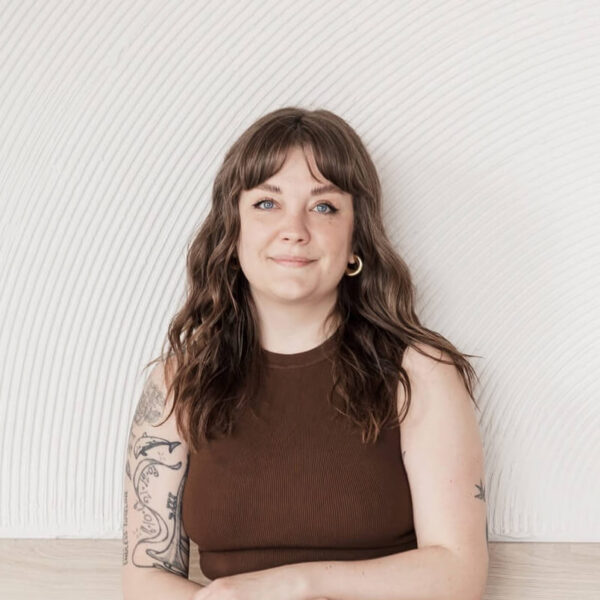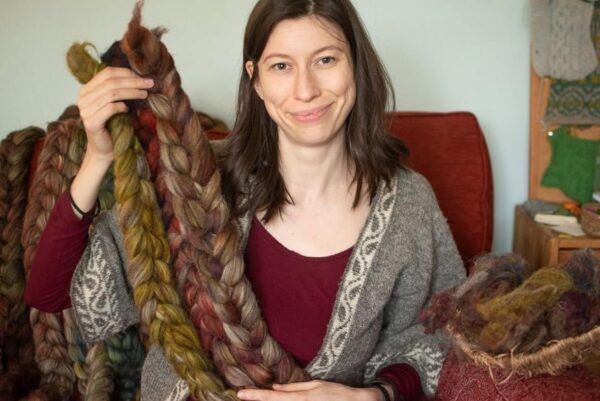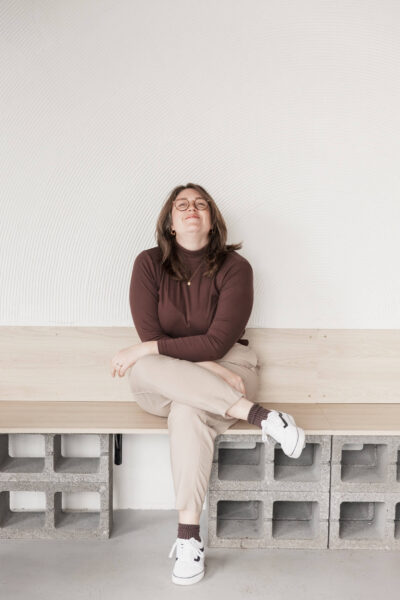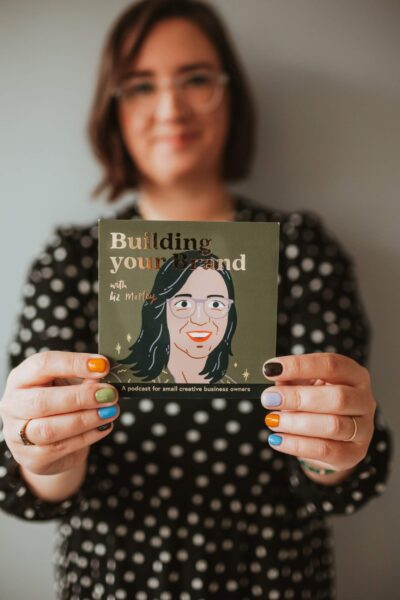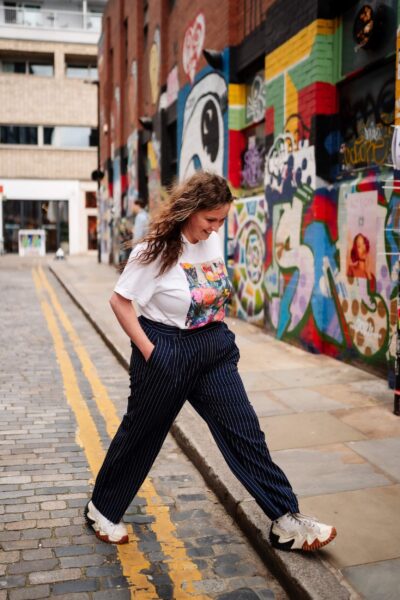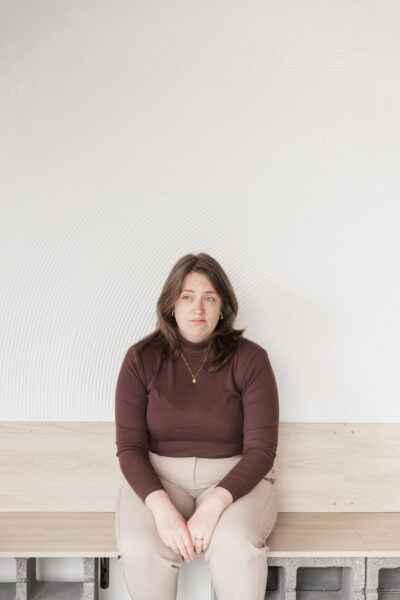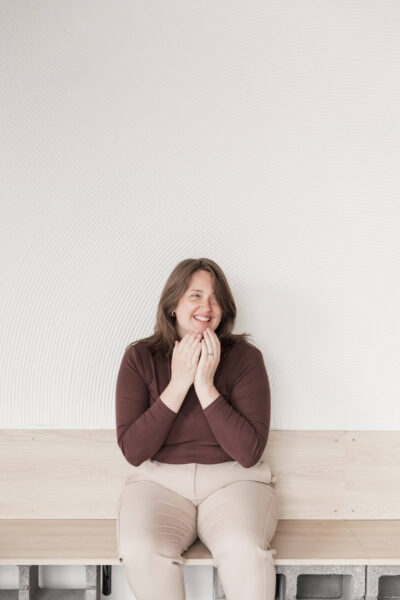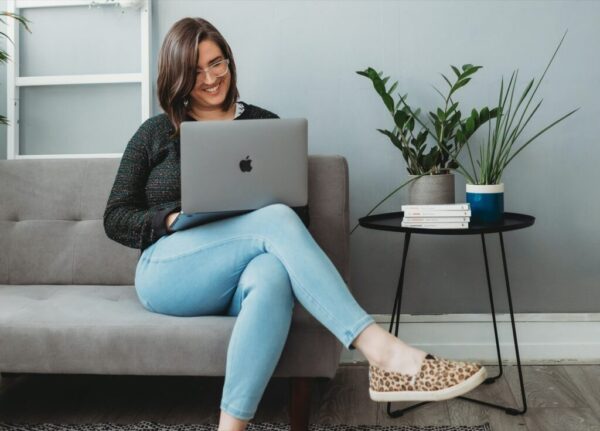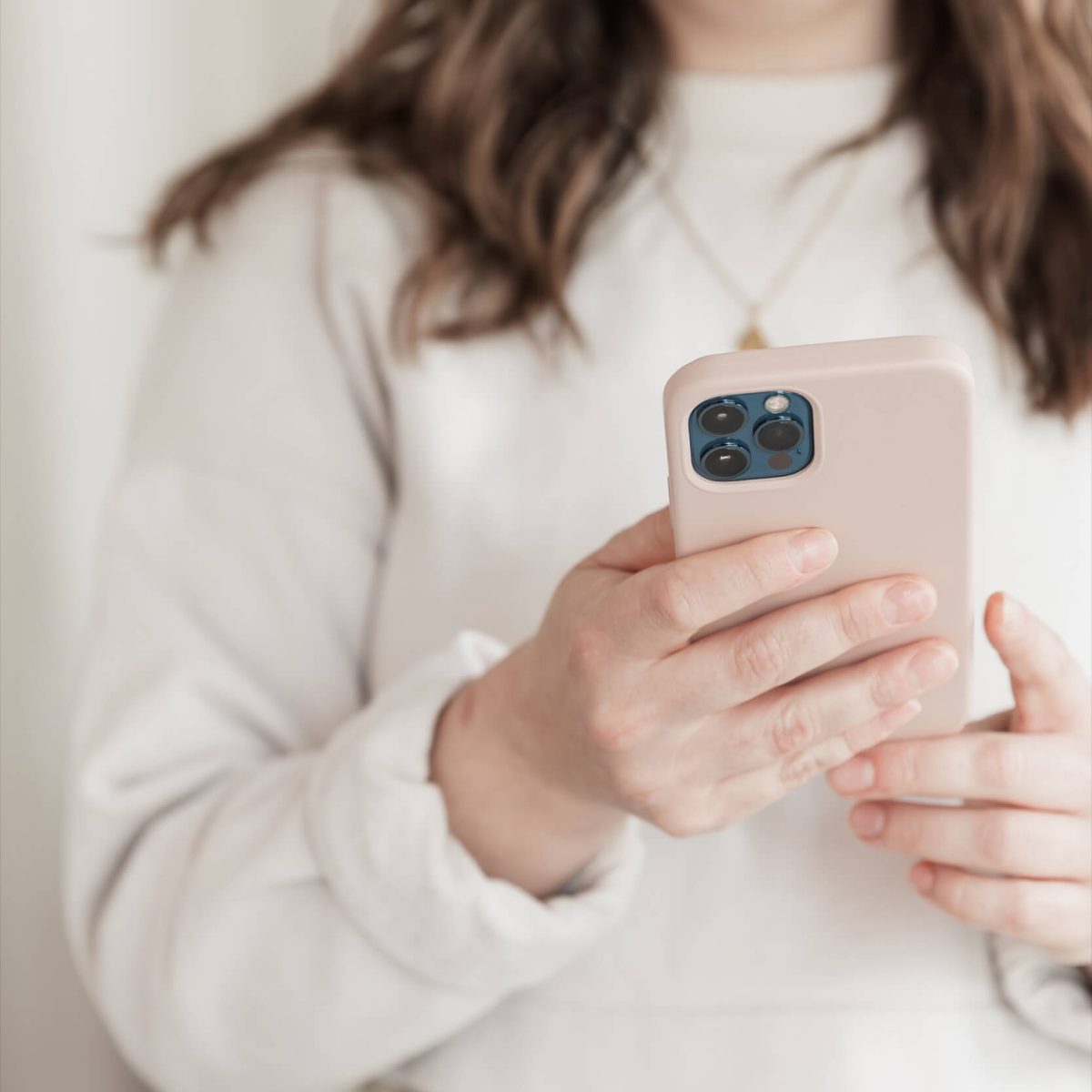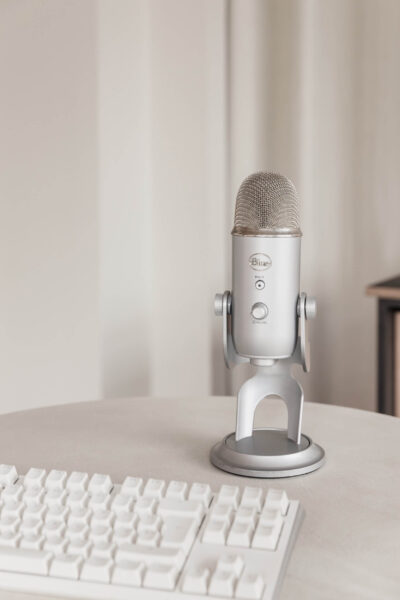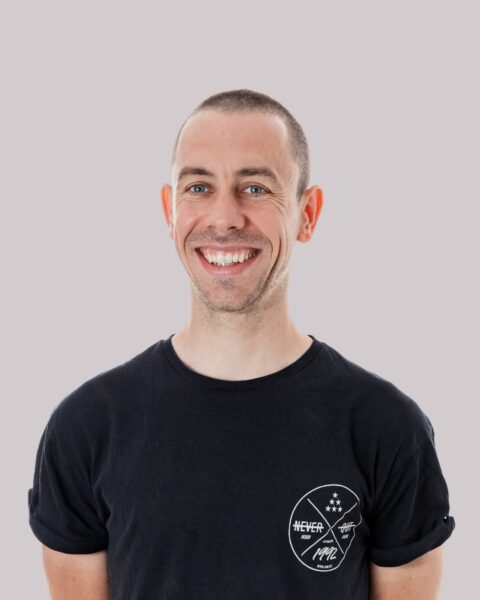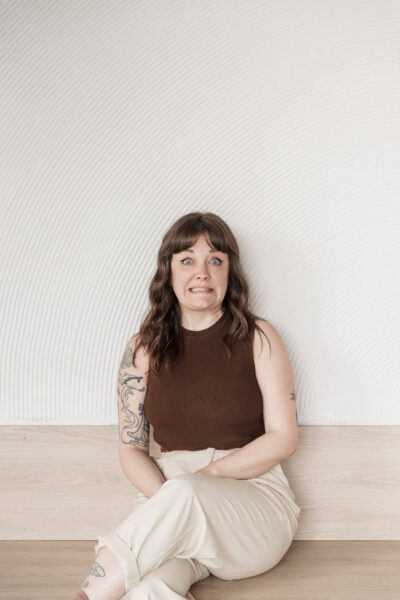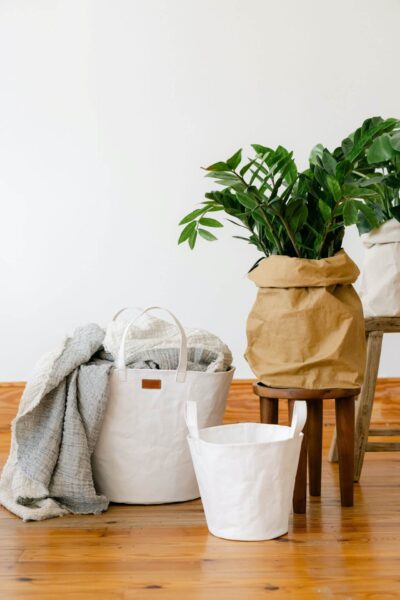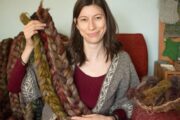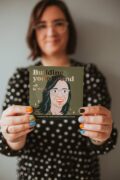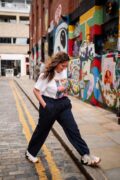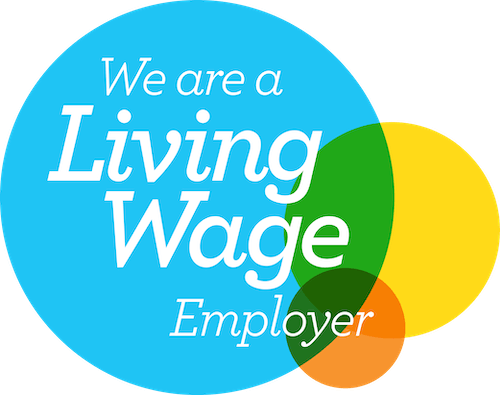Time for another Q&A with a lovely podcaster – you can read our others in our (Small) Business of Podcasts series here. Today we’re chatting to Tom from Lancashire about his podcast About Creative Experience, which was previously known as Photographers Coffee Morning.
He launched his creative podcast on New Year’s Day in 2023, and describes it as a casual conversation with a professional creative that helps photographers and related artists grow their practice, build a better business and live a creative life.
Tom is super experienced in photography and video, and teaches photographers, videographers and professionals how to build their visual identity, as well as the systems to support it. You can find out more about all the ways he does that on his website.
Now, let’s dive into the podcast side of his small business.
1. Why did you start About Creative Experience?
When lockdown started I was running a support group for photographers on Clubhouse called Photographers Coffee Morning.
We met 3-5 times a week to talk about life as a professional photographer during COVID, and it ended up helping a lot of people stay inspired and motivated at a time when it was literally illegal for many of us to go out and work.
We had roundtable discussions with 50-100 people at a time at it’s peak, and it really taught me how important it is to have connection, even when we work alone.
I learned just as much from new photographers as industry veterans, and I came to love those hours spent talking about process, practice, and everything in between.
When lockdown eased and people got back to work, it became more and more difficult to maintain a live space that everyone could be there to enjoy, so I had to close the group.
People kept reaching out to say how much they had valued that time and asked if I could do it again, so we started out running smaller groups and recording the conversation. Those calls and interviews ended up being season 1 of my podcast.
2. What was your original goal for the podcast?
I wanted people to feel connected and inspired by the other photographers in our industry.
The work we do is pretty isolated by design – most shoots don’t need multiple photographers, and it’s rare to be able to talk frankly with photographers about why they work the way they do.
I really wanted to build a space where people could have a meaningful conversation about the art, business and living life with a creative job as your income source.
3. “90% of podcasts don’t get past their 3rd episode” – what helped you to keep going?
By the time the podcast had started, I’d easily run 500 conversations with creatives online. Clubhouse was a real proving ground for me and I can’t imagine life without those conversations.
None of the conversations on Clubhouse were recorded, which meant you could be much looser with your delivery and recording, packaging and distribution was taken care of by the platform. When starting out alone those practical elements can end up being a real challenge.
Developing systems for recording, post production, and having the images and video you need to promote the podcast will basically make or break your podcast.
Further to that, understanding that what you’re doing doesn’t need to stick to a regular schedule can help prevent the creative block and paralysis that creeps in.
Every podcast you share is another voice we wouldn’t hear without doing the work. Don’t let a schedule stop you from making stuff.
4. What has been an unexpected business benefit of podcasting?
Because of podcasting and Clubhouse, I now have a thriving education practice teaching photographers how to develop a distinct visual identity in their work.
This all started because past guests on Clubhouse had urged me to share what I did in a way that was more targeted and personal.
That teaching practice has gone on to be one of the most fulfilling products I offer as a business, and I wouldn’t even have realised the value of it without the input of other highly respected photography teachers.
5. How did you make your first £1 from podcasting?
My podcast alone doesn’t make money. I made the decision at the beginning that I didn’t want to take sponsorships because of the way it changed the dynamic of the conversation we had.
Early on I had a golden rule: “no pitching, no self promotion, and no sponsorships,” and so far that’s only been a good thing. It’s allowed me to have open conversations with companies that wanted to sponsor me, and let me talk to them without pulling any punches.
It helped me keep my integrity as an educator and a photographer. If I recommend something now you can know that I’m never being paid to say it. It also means if a product or service stops being useful for a photographer, I can be honest and talk about that to my audience.
Add to this the fact that I produce video with every podcast we record now, the podcast costs me money on equipment, time and recording services which are all costs to my business.
6. Where have you found the most success in monetising About Creative Experience?
You can be your own sponsor. If you have a service or product that’s valuable to your audience, the podcast becomes a platform for you to grow as a practitioner and prove your insight.
Businesses don’t support podcasts unless it makes financial sense for them to do that, they are essentially paying you to keep making your podcast and reaching the audience they want.
If it’s valuable for someone else to appear on my podcast, I can make it more valuable to my own business.
Stop waiting to be picked and be your own sponsor.
7. What’s your least favourite thing about having a podcast?
The software used for remotely recording podcasts sucks. Even the best remote recording software is far from perfect – they all have issues with latency, audio dropouts, and video quality that need to be managed and checked.
Even as an audio/visual professional, no platform has been simple or reliable, with countless hours being spent trying to fix issues caused by the platforms.
Those problems that these platforms caused have been the number one cause of delays, gaps in the podcast and frustration for me as a creative.
8. What do you wish you knew about producing a podcast before you started?
Systems will save your sanity. Knowing exactly how you’re going to record and edit, and what assets you need to publish frees up so much time.
Preparing transcripts and blog notes, and creating a thumbnail while editing the video, for example, can save hours of time when I need to publish my podcast episodes.
If I wasn’t a techy person before this, I’d also say that starting with reliable equipment is also vital. A good mic that makes your voice sound great and learning how to use it well is going to save you hours of editing and raise the production value of the podcast 10x.
9. How have you gained your podcast listeners?
The number one method of getting new listeners has been word of mouth. After that it’s been YouTube. Topical conversation with searchable titles has lead to a number of episodes having a breakout success on YouTube.
My more general interview videos perform better on traditional platforms like Apple Podcasts and Spotify, but tend to underperform on YouTube. If you address common pain points in your podcasts, YouTube is well worth the time.
Podcasting doesn’t have traditional network effects like a social media app, but being present on every platform is also vital.
10. What aspects of your podcast production do you outsource or delegate?
To me, delegation is something for the future. I’m an experienced video editor, so I’m happy to do that work myself, and the more I do, the more I’m learning how to be a better podcaster.
Hearing the times that I speak out of turn or start falling into lazy speech patterns when presenting helps me to think of new ways to speak and reflect on what I’d do differently.
I also love the outreach side of lining up guests – having a personal conversation and getting a feel for the topics they are passionate about helps inform the interviews themselves.
That said, the single biggest time investment is in the video editing, and it’s likely to be the first element I’ll automate or outsource.
Simple activities like cutting camera angles to match audio can take hours to do well, and that time is likely better spent speaking to new guests or working with photographers on their businesses.
If you don’t have editing skills, a good podcast editor is worth their weight in gold.
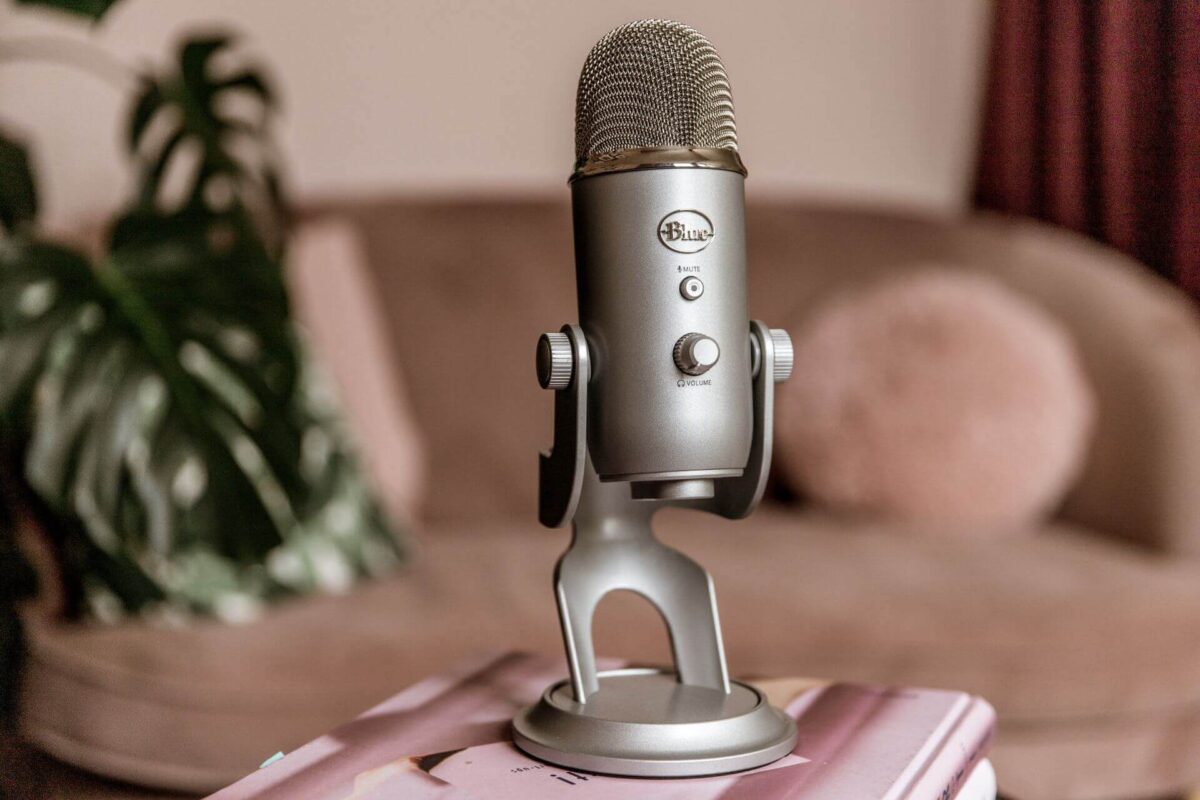
Exceptional websites for brilliant podcasts
Check out our brand new website design package – a dedicated, optimised website for podcasts.
11. How long would you say it took for About Creative Experience to have a positive commercial benefit for you or your business?
The podcast was instantly a benefit; the connections I made in even the earliest episodes have been vital to my business.
I have clients comment often that they have gone back and listened to the entire back catalogue prior to working with me, and it’s been an immense source of trust.
Financially, the podcast is fully supported by my education practice and it’s a major source of new enquiry for my business – far fewer people reach out when I’m less active on the podcast.
12. How much would you recommend that a new podcaster budget for getting started, and where should they spend it first?
If you’re on a budget, you could easily start with a super strong offering at £250 and a £25/month subscription to Riverside, as long as you have a Mac and an iPhone to record on.
Buy a great mic first – having good quality audio is a must for me, nothing saps my will to listen more than terrible audio from a podcast, and your audio is only ever as good as the quality of your voice, the room you stand in and the mic you choose.
If you want an all in one solution for an audio podcast I’d recommend grabbing a Rode PodMic USB or a Shure MV7 Podcast Microphone. They are both USB mics and come with software that allows you to really make your voice shine.
I personally use the Shure MV7, but either mic is fine and available for under £250.
I’d also recommend including video – Spotify and YouTube both offer native video for podcasts. Both providers have been a large part of my audience, and it also makes content creation for social media.
You don’t need to have a fancy camera (although I’d recommend one if you have a budget over £2,500) but you will need video editing software like Davinci Resolve (Free), Final Cut Pro, Premiere Pro, or a the suite offered by recording apps like Riverside and Dehancer.
Spotify offer free podcast hosting on their platform, and YouTube are now rolling out RSS for podcasts, so hosting can be completely free if you need.
13. What is a really small thing you’ve done that has helped About Creative Experience grow?
Take breaks to refocus and plan new directions.
Keeping up a regular schedule and perusing client work can get exhausting, so I now plan my content in seasons.
Take the time off to make plans for your next creative sprint.
14. What’s on the immediate horizon for your podcast?
This season we have made some big changes, from the title (previously Photographers Coffee Morning) to the format, and I’m making a push to interview people in person.
It leads to a more relaxed atmosphere, and far fewer technical problems than recording online!
As recommended by Tom
We asked Tom to recommend 3 people, organisations or resources that have helped him as a podcaster…
1. Clubhouse
Clubhouse was my biggest teacher – it was a chance to learn how to lead a conversation and interview, but sadly the business has totally changed and is nothing like the platform I used.
I’d recommend joining facebook groups, in person networking events and going to places your customers are and get really good at talking directly to them.
2. Riverside
All recording platforms have faults, but in my experience Riverside has the fewest. It’s been the most robust recording system I have ever used, and now includes editing tools and AI that creates short form content for you right on the platform.
3. Coaching, education or mentoring
Creative life isn’t like other forms of work, we don’t have a set path we can all follow and a lot of the “best practices” lead to cookie cutter results that don’t serve us or our businesses well. I’d strongly getting coaching, education or mentoring for any areas in business you want to improve.
Jo McCarthy is my business coach and has been an endless source of clarity for me. We all need direction, so don’t be afraid to reach out to educators and coaches that can help us perform better.
You can listen to About Creative Experience on Spotify, on Apple Podcasts, and anywhere else you get your podcasts. Follow Tom on Instagram for updates, and watch his helpful videos on YouTube.
For more insights into the podcasting world, head to (Small) Business of Podcasts to read more of our nosey Q&As with podcasters.
